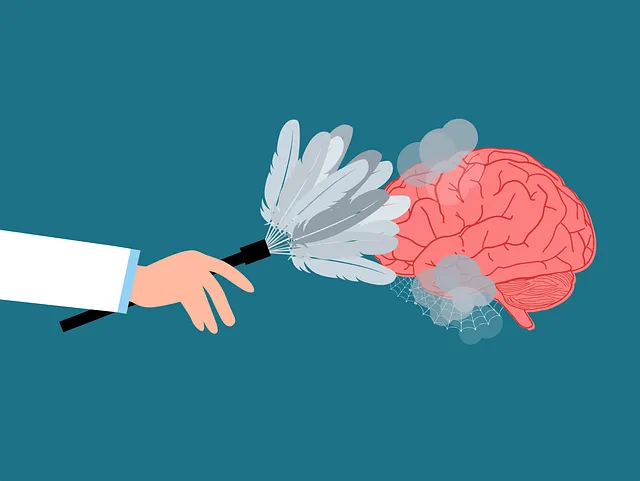The Kaiser Permanente behavioral health center in Golden, CO, offers comprehensive crisis intervention services with a multifaceted approach. They blend evidence-based interventions like CBT and mindfulness with proactive measures like public awareness campaigns and community outreach. Their crisis assessment uses tools like CAT for precise diagnoses, combining clinical expertise with empathy to de-escalate tensions. Post-crisis care includes counseling, psychological first aid, and mental health education programs, fostering recovery, resilience, and long-term prevention strategies within the community.
“In times of crisis, effective support can make all the difference. The Kaiser Permanente Behavioral Health Center Golden serves as a beacon of hope, providing vital crisis intervention strategies that save lives and promote healing. This comprehensive guide explores the essential components of crisis intervention, from understanding its foundational principles to assessing situations and implementing evidence-based interventions. Additionally, it delves into post-crisis care and prevention strategies, emphasizing community resilience. By drawing on the expertise of Kaiser Permanente, this article offers valuable insights for professionals and communities seeking to navigate and mitigate crises effectively.”
- Understanding Crisis Intervention: A Foundation for Effective Support at the Kaiser Permanente Behavioral Health Center Golden
- Assessing the Situation: Tools and Techniques to Evaluate Crisis Situations
- Evidence-Based Interventions: Strategies Proven to Make a Difference
- Post-Crisis Care and Prevention: Building Resilience in the Community
Understanding Crisis Intervention: A Foundation for Effective Support at the Kaiser Permanente Behavioral Health Center Golden

At the Kaiser Permanente Behavioral Health Center Golden, understanding crisis intervention is seen as a cornerstone for delivering effective support. Crisis intervention strategies are designed to provide immediate and targeted assistance to individuals facing acute mental health crises, aiming to stabilize them and prevent further deterioration. By integrating evidence-based practices and tailored interventions, the center ensures that each individual receives comprehensive care that addresses their unique needs.
The Kaiser Permanente Behavioral Health Center Golden recognizes that effective crisis intervention requires a multifaceted approach. This includes not only direct support during acute episodes but also proactive strategies such as public awareness campaigns to destigmatize mental health issues, risk management planning for mental health professionals to enhance safety, and inner strength development programs to equip individuals with coping mechanisms. Through these initiatives, the center fosters a supportive environment that promotes recovery and resilience among those facing mental health challenges.
Assessing the Situation: Tools and Techniques to Evaluate Crisis Situations

When assessing a crisis situation, especially at a Kaiser Permanente behavioral health center Golden, it’s crucial to employ a multifaceted approach that combines clinical expertise with human connection. Tools such as the Crisis Assessment Tool (CAT) help professionals quickly evaluate risk factors, including suicidal ideation, violence potential, and substance abuse. These tools are designed to be adaptable, considering both environmental cues and individual presentations for accurate diagnosis.
Effective assessment involves not just identifying symptoms but also understanding the context. Communication strategies, like active listening and open-ended questioning, foster empathy building, crucial for de-escalating tension. Additionally, professionals should screen for underlying conditions like depression prevention, as these can exacerbate crisis situations. The goal is to create a safe space where individuals feel heard and supported, enabling thorough assessment and appropriate intervention planning.
Evidence-Based Interventions: Strategies Proven to Make a Difference

At the Kaiser Permanente behavioral health center Golden, experts emphasize the power of evidence-based interventions in crisis management. These strategies, backed by extensive research and clinical trials, offer proven solutions for individuals facing mental health challenges. By implementing effective methods such as cognitive-behavioral therapy (CBT) and mindfulness practices, the center provides targeted support that accelerates emotional healing processes.
The Community Outreach Program Implementation at Kaiser Permanente goes hand in hand with these evidence-based interventions. The program aims to connect vulnerable populations with essential resources, fostering a holistic approach to mental wellness coaching programs development. Through collaborative efforts and tailored initiatives, they ensure that individuals receive comprehensive care, ultimately contributing to enhanced community resilience and well-being.
Post-Crisis Care and Prevention: Building Resilience in the Community

Post-crisis care and prevention play a pivotal role in fostering resilience within communities, especially following traumatic events. Kaiser Permanente behavioral health centers, like the one located in Golden, offer specialized services to support individuals and communities in healing and rebuilding. This involves providing immediate post-crisis interventions, such as crisis counseling and psychological first aid, to help those affected manage their emotions and cope with the aftermath.
A key aspect of this process is promoting mental health education programs designed to enhance self-esteem, resilience, and coping mechanisms. By implementing these programs within communities, residents gain valuable skills to navigate future challenges. This proactive approach not only helps individuals recover from crises but also contributes to long-term prevention strategies, ensuring that the community as a whole becomes more resilient in the face of adversity.
Crisis intervention plays a pivotal role in fostering community resilience, as demonstrated by practices at the Kaiser Permanente Behavioral Health Center Golden. By understanding crisis situations, assessing them effectively, implementing evidence-based interventions, and providing post-crisis care, we can create a supportive environment that prevents future crises. Adopting these strategies not only helps individuals navigate challenging times but also contributes to the overall well-being of the community, mirroring Kaiser Permanente’s commitment to behavioral health excellence.






